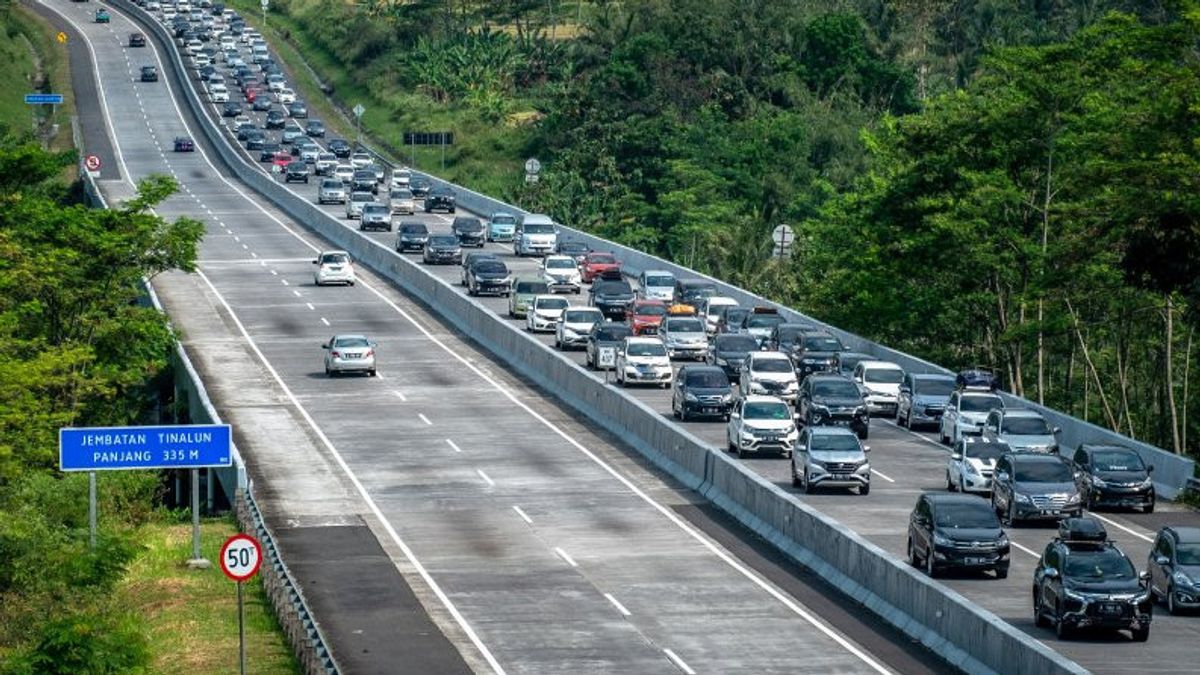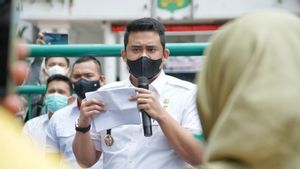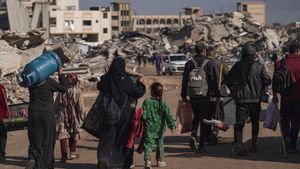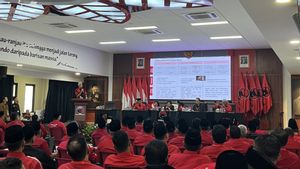JAKARTA - The governor of Central Java, Ganjar Pranowo, said that the government had eliminated the Eid homecoming trip again in anticipation of a spike in COVID-19 cases.
"The term, there is no homecoming for you," he said in a discussion in Semarang as quoted by Antara, Wednesday, April 28.
He said the curve of COVID-19 cases in Indonesia - especially Central Java - is currently decreasing and likens it to approaching the finish line.
"The finish line is already visible in front. If we are careless and undisciplined, we will return again, not towards the finish but towards regret," he said.
Ganjar reminded that the spike in COVID-19 cases that led to deaths in India should not occur in Indonesia due to the momentum of homecoming on this year's Eid Al-Fitr.
According to Ganjar, it doesn't matter if people don't return to their village of Lebaran, aka homecoming again like last year because they are still in the COVID-19 pandemic.
"If the context is going back to the homecoming holiday, many people will return to their villages before Eid, millions of people will return home. This is still a pandemic, you know," he said.
Meanwhile, Grand Commissioner Rudi Antariksawan, Head of Traffic Corps Ops, said that they had anticipated the people who would go hometown for Eid by carrying out interceptions, both on toll roads, arterial roads, and alternative roads.
"We also carry out interceptions for 24 hours on the shortcut route," he said.
Interceptions are not only carried out on four-wheeled vehicles but also on motorbikes and people who are caught going back and forth will be asked to make a round trip back to their area of origin.
"We learned from last year's feast, if the homecomers escaped at the first interception post, they would not have escaped at the next interception post," continued Rudi.
Meanwhile, the Head of the COVID-19 Data and IT Task Force, Dewi Nur Aisyah, added that there is a strong correlation between population mobility and long holidays and an increase in active cases of COVID-19.
SEE ALSO:
Long holidays, he said, resulted in an increase in Covid-19 cases in Indonesia. Every time the long holiday is over, there is an increase in COVID-19 cases 10-14 days later. "The impact of the increase in cases was seen for at least three weeks, after the long holiday," said Dewi.
He described the increase in COVID-19 cases during the Eid al-Fitr holiday for the period 22-25 May 2020 which had an impact on the increase in cases on 6-28 June 2020 and an increase in the average number of daily cases after Eid Al-Fitr 2020 by 68-93 percent.
"The development of the mortality rate tends to follow the number of additional cases, the higher the number of cases has the risk of increasing the number of deaths," he said.
The English, Chinese, Japanese, Arabic, and French versions are automatically generated by the AI. So there may still be inaccuracies in translating, please always see Indonesian as our main language. (system supported by DigitalSiber.id)


















